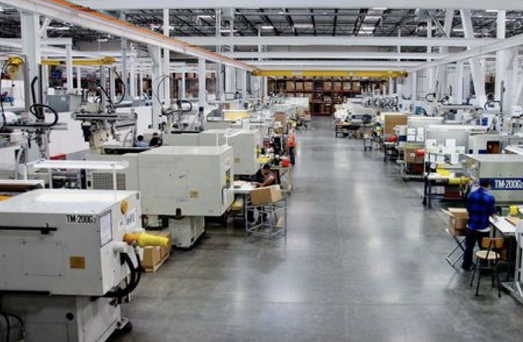In today’s competitive manufacturing landscape, precision and efficiency are paramount. One of the most vital elements in achieving these objectives is the role of the mould maker. A mould maker is responsible for designing and producing the molds used in various manufacturing processes. These molds are essential for shaping materials into desired forms, making the quality of a mould maker’s work critical to the success of the end product.
This article delves into the importance of a mould maker, the benefits they offer, and how their expertise contributes to diverse industries.
What is a Mould Maker?
A mould maker is a specialist who designs and manufactures molds for various production methods, such as injection molding, blow molding, and compression molding. These molds are used to create components with specific shapes and sizes by shaping materials like plastics, metals, or rubber. The accuracy and quality of the molds directly affect the consistency and precision of the final product.
Key responsibilities of a mould maker include:
- Designing Molds: The process begins with designing molds that meet the specific requirements of a product. This involves working closely with clients to understand their needs, creating detailed design specifications, and often developing prototypes to test and refine the mold design.
- Manufacturing Molds: Once the design is finalized, the mould maker uses advanced machinery and techniques to produce the molds. This step requires high precision and attention to detail to ensure that the molds perform correctly and produce consistent results during manufacturing.
- Testing and Quality Control: Before molds are used in production, they undergo rigorous testing to ensure they meet quality standards. Quality control measures are implemented to detect and address any potential issues, ensuring that the molds produce high-quality components.
- Maintenance and Support: After the molds are in use, the mould maker may provide ongoing support and maintenance to address any issues that arise and ensure the molds continue to perform effectively over time.
For more detailed information about the services provided by a mould maker, visit Raidy Mould.
Why a Mould Maker is Essential
A mould maker plays a crucial role in the manufacturing process, and their expertise impacts various aspects of production:
- Precision and Quality: The accuracy of a mold directly influences the quality of the final product. A skilled mould maker ensures that the molds they produce are precise and meet exact specifications, which is essential for maintaining high-quality standards in production.
- Customization: Many products require custom molds to achieve unique designs or functionalities. A mould maker can create molds tailored to specific product requirements, allowing for innovation and differentiation in the market.
- Efficiency: High-quality molds improve the efficiency of the manufacturing process by reducing the likelihood of defects and minimizing waste. This efficiency translates into cost savings and a better return on investment for manufacturers.
- Durability: The longevity of a mold is crucial for maintaining consistent production quality over time. A well-made mold from a reputable mould maker can withstand repeated use and continue to produce high-quality components, reducing the need for frequent replacements.
- Support and Expertise: Experienced mould makers provide valuable insights and support throughout the design and production process. Their expertise helps in troubleshooting issues, optimizing designs, and ensuring that the molds meet industry standards.
Industries That Benefit from a Mould Maker
A mould maker provides essential services across a wide range of industries, each benefiting from custom molds designed for specific applications:
- Automotive Industry: In the automotive sector, molds are used to produce various components, including interior parts, exterior panels, and engine components. Precision molds are critical for ensuring that these parts meet stringent safety and performance standards.
- Consumer Goods: Many consumer products, such as packaging, electronics, and household items, are manufactured using molds. Custom molds enable the creation of unique designs and features that cater to consumer preferences.
- Medical Devices: The medical industry requires highly accurate and reliable molds to produce medical devices and equipment. Molds used in this sector must meet rigorous quality and safety standards to ensure the effectiveness and safety of medical products.
- Aerospace Industry: In aerospace, molds are used to create high-performance components for aircraft and spacecraft. The complex shapes and materials used in aerospace applications demand specialized mold design and manufacturing.
- Industrial Applications: Custom molds are also utilized in various industrial processes, such as machinery parts and tools. Mould makers provide the expertise needed to produce durable and functional components for industrial use.
The Process of Working with a Mould Maker
Collaborating with a mould maker involves several key steps to ensure that the molds meet your specific needs and contribute to a successful manufacturing process:
- Consultation: The process begins with an initial consultation to discuss the client’s needs and product specifications. The mould maker gathers information about the product design, materials, and any unique requirements.
- Design and Prototyping: Based on the consultation, the mould maker creates detailed design drawings and prototypes. Prototyping helps to test and refine the design before moving to full-scale production, ensuring that the final mold will meet all specifications.
- Manufacturing: Once the design is approved, the mould maker manufactures the molds using advanced machinery and precision techniques. This step requires careful engineering to ensure the molds perform correctly during production.
- Testing and Quality Assurance: Before the molds are put into full-scale production, they undergo rigorous testing and quality assurance. This process ensures that the molds produce high-quality components and meet industry standards.
- Ongoing Support: After the molds are in use, the mould maker may provide ongoing support and maintenance to address any issues and ensure the continued performance of the molds.
Choosing the Right Mould Maker
Selecting the right mould maker is crucial for achieving high-quality results and optimizing the manufacturing process. Consider the following factors when choosing a mould maker:
- Experience and Reputation: Look for a mould maker with a strong track record and positive reviews from previous clients. Experience and reputation are indicators of reliability and expertise.
- Technical Capabilities: Ensure that the mould maker has the technical capabilities and equipment needed to handle your project. This includes advanced machinery, design software, and quality control processes.
- Customization Options: Choose a mould maker that offers customization options to meet your specific needs. The ability to create custom molds tailored to your product design is essential for achieving the desired results.
- Communication and Support: Effective communication and support are important for a successful collaboration. Look for a mould maker that is responsive and provides clear communication throughout the design and manufacturing process.
- Cost and Turnaround Time: Consider the cost and turnaround time for the project. While cost efficiency is important, ensure that the mould maker can deliver high-quality molds within your required timeframe.
Conclusion
The role of a mould maker is essential in modern manufacturing, providing the expertise and precision needed to create high-quality molds for various production processes. By offering high-quality production, customization options, and expert support, mould makers contribute significantly to the success of manufacturing operations across different industries.
Understanding the benefits of working with a skilled mould maker and the process involved in collaborating with them can lead to more efficient and successful manufacturing outcomes.



